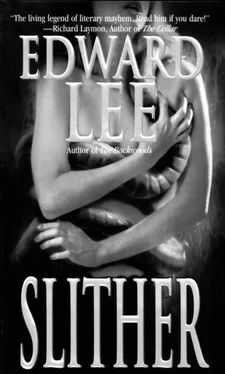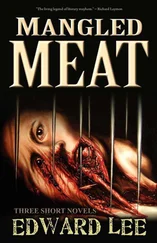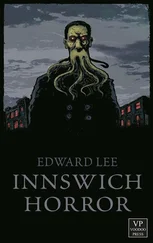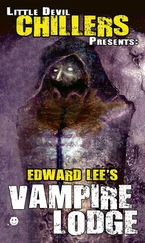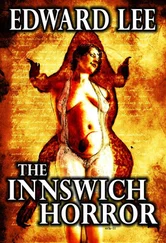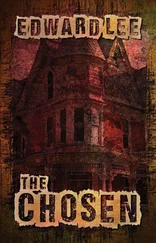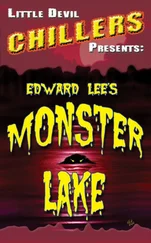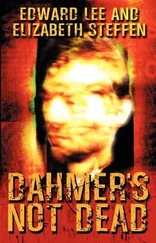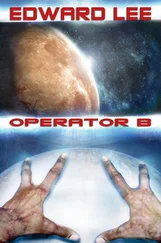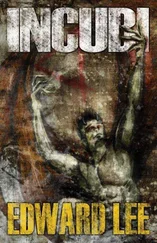"And just more proof of a parasite that can live on land and in water."
"Um-hmm."
Loren wasted no time in making a transabdominal incision on the adult possum. When he parted the rive with dissection probes, he simply stared. "I don't even have to put any tissue samples under the scope to see that this possum is seriously fucked up."
"Huh?" Nora leaned over and looked.
"There's nothing inside. All internal organs are absent."
"That's impossible. It hasn't been dead long enough to suffer that level of putrefaction."
"I'm not even smelling putrefaction, Nora, not a trace. Somehow the entirety of its organ systems was removed before any cellular deterioration could take place."
"Eviscerated by a predator?"
"The body was intact," he objected. "No cuts on it, no bite marks. If a skunk or another possum ate this thing's innards, there'd be bite marks on the abdomen."
Now Nora could see what he meant. "And it couldn't be a bacterial infection or a corruptive stomach virus because there'd still be signs of decomposition."
"And there isn't any," Loren finished, frustrated. He pushed away from the table, arms crossed in thought. "So you know what I'm thinking now?"
Nora nodded. "This is the same way that chitinpenetrating nematodes eat."
"Yeah, but they don't eat five-pound mammals, they eat quarter-ounce crustaceans and mollusks." He looked over at Nora's microscope. "What's your ovum doing now?"
Nora eyed the scope. "Shit, it's about half the size of a marble now. A half hour ago it was smaller than a pencil point."
Trent came back in, looking just as flustered as Nora and Loren. "What's wrong with you two? You looked pissed."
.Not pissed," Loren offered. "More like aggravatedly confounded."
Trent frowned. "I can't find Annabelle anywhere."
"That's not good," Loren said. "Especially if we've got the kind of trouble we think we might have."
"What are you talking about?" Trent demanded, losing some patience.
"Well, Lieutenant," Nora began, "we seem to have a tiny parasitic worm that lives on land and sea and may be able to grow to unheard-of proportions. Big enough, at least, to attack, and kill, that." And she pointed to the possum on the table.
"Before you started cutting on it, it didn't look attacked," Trent said.
"Something sucked this thing's guts out for food," Loren specified.
Nora tacked on, "And then laid eggs in all its babies. And the eggs were the same yellow things we saw in the shower stall the other day."
"You can't be serious," Trent dismissed.
"Look familiar, Lieutenant?" Nora picked up the microscope slide and showed him what was on it: a yellow ovum with bloodred spots, the size of a pea.
"Holy shit…"
"This thing's probably increased in size a hundredfold in less than an hour."
Trent rubbed his brows. "How is that possible?"
"We don't know," Loren said. "High infantile growth rates among worms and other soft-bodied invertebrates aren't uncommon. But motile ova like this are another story. They always stay the same size before they hatch."
Trent eyed the ticklike pod. It was moving about very slightly via its cilia. "So that thing's going to hatch into a worm."
"Maybe, maybe not," Nora said. "Certain types of ova-like certain types of sperm cells-aren't always fertile."
"That one's big enough to dissect now, Nora," Loren reminded her.
"Good idea." She placed the slide back under the scope, then carefully wielded forceps with one hand, and one of the microscalpels with the other.
"Ten to one there's no embryo in it," Loren said.
"I'm not following any of this now," Trent admitted. "I thought an ovum and an egg were the same thing."
.Not quite," Loren offered. "An egg always carries an embryo, while ova sometimes have dual purposes."
"I still don't get it."
"Be patient… Nora held the yellow bud down with the tines of the forceps, then gingerly cut into the rubbery outer hull. The ovum popped more than split, and out issued a dollop of jellylike muck laced with something like white threads.
"You were right," she said. "There's no worm larva inside, just some white strands. Probably a mutagenic protein." Next she plucked up several of the previously killed ova and similarly cut them open. "Looks like half of these have infantile worms in them-"
"And the other half contain the mutagen," Loren already knew. "Just like a lot of the Trichinellas."
Trent shook his head. "Would somebody please explain what you're talking about?"
Nora sat back and began, "Motile ova-in other words, egg carriers that move about independently are part of this worm's reproductive system. Typically a parasitic worm will lay its ova in a living host. The nonfertile ova release a mutagen that genetically alters the host's own reproductive systems to make it a more compatible natal environment. Later, the fertile ova hatch. The mutagenesis has occurred in order to force the host to bear the worm's young."
"Yuck," Trent remarked.
"Sure, but a perfect system that increased the odds of positive reproduction. A similar thing happens in many mammals including humans, believe it or not. Not with ova but with sperm cells. Most people don't know that only about half of a man's sperm exist to fertilize a female egg. The remaining sperm have alternate duties: to kill sperm from other males, for instance, to run interference against bacteria that possess spermicidal traits. Some sperm even release protein secretions that fool another male's sperm into believing it to be an egg, wasting its potential. All for the sake of increasing the chances of reproductive success."
"You're right," Trent admitted. "I didn't know that. I thought all sperm was the same."
"Well, it's not, and neither are ova. This worm's ova have multiple purposes, too: to genetically adapt a hostcrab, mollusk, shrimp, and in this case even a possum-to become an unwilling reproductive vessel. And that's exactly what alarmed Loren and me about this worm. It looks a lot like an order of roundwormor nematode-called Trichinella and Trichina."
"That sounds familiar for some reason," Trent said after a pause.
"Sure," Loren said. "Everyone's heard of trichinosis."
More recognition in Trent's eyes. "The stuff you get from eating uncooked pork."
"Right. That worm-the Trichinella spiralis-and others like it can mutagenically change a host to make it more habitable to its own young, too. But the difference is-"
Nora took it from there. "Those kinds of worms never grow more than a few millimeters in length-but look how big this one's gotten just in the last hour."
She held up the beaker.
"Christ!" Trent exclaimed.
The worm inside was now eight inches long and squirming vigorously.
.The similarities are interesting," Nora continued, "but so are the differences. The Trichinella spiralis is an inborn worm-meaning it doesn't live on land or in water. The species exists entirely in hosts, transferring from one to another through food and excrement."
"Lovely," Trent said, making a nauseated smirk.
"But there are plenty of Trichinella-like nematodes that live on land as free-ranging worms, and plenty more that are marine and freshwater species. None of them, however, can do both."
"But this one can," Loren said.
"The most alarming thing about this worm is that it actually resembles several totally different types of worm all in one."
Loren: "It's almost like this thing is part earthworm, part leech, part clam worm, and part trichinosis worm."
"A mutation?" Trent attempted. "From chemicals in the water or something?"
"No mutation could cross-breed multiple species," Nora informed him. "We've seen evidence that it's a chitin penetrator-like a clam worm."
"From the lobster," Trent remembered.
Читать дальше
